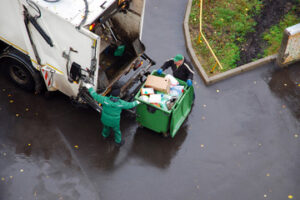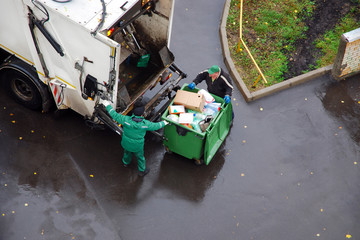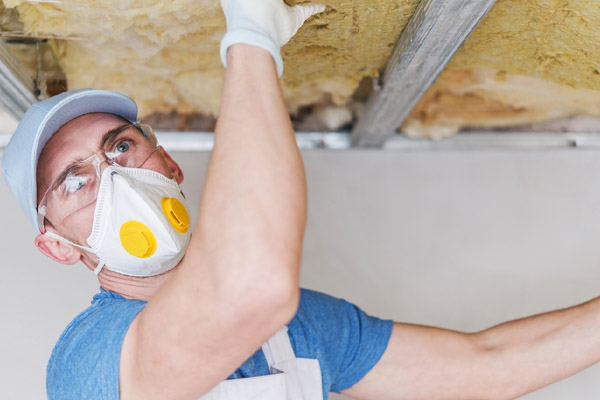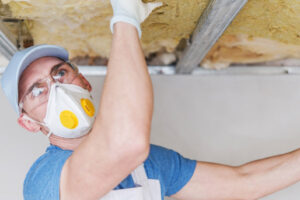Armadale Rubbish Removal is a process of disposing of waste. Trash that cannot be recycled or donated is either buried or sent to landfills.
Buried rubbish can leach toxic chemicals into the ground and contaminate drinking water. It can also corrode pipes and block stormwater drains.
Professional rubbish removal services ensure that waste is disposed of properly and in accordance with local regulations. This helps to minimize pollution and protect the environment.
When rubbish is removed from your home or business, it’s important to sort it before disposal. This can help to make sure that all materials are recycled and that nothing is thrown out that could cause harm. It’s also a good way to reduce the amount of waste that you create, which is always a bonus.
Recycling is the process of reusing items or taking them to a factory where they can be remade into new items. This is done for many different types of materials, including metals, glass, and plastic. It is one of the best ways to protect the environment and prevent toxic materials from entering water bodies. It also saves energy by not producing new materials from scratch.
It is vital that rubbish removal services are regulated and that people follow the rules when it comes to throwing out their trash. This is because rubbish is often transported long distances before being disposed of, and it can end up in rivers or lakes. When this happens, it can cause damage to the ecosystem and even human health.
If you have a lot of rubbish to dispose of, it’s a good idea to organize it into separate piles. This will make it easier for the rubbish removal company to handle. You can also make separate piles for items that you can donate or recycle. Then, you can arrange for these items to be picked up by the rubbish removal service.
While rubbish removal is an essential service, it can be dangerous for workers who collect and dispose of it. These workers are exposed to a variety of hazardous chemicals that can lead to serious health problems, including difficulty breathing, eye irritation, rashes, and infections. Some of these chemicals can even cause birth defects.
Hazardous Waste
Hazardous waste is a term used to describe unwanted or unusable materials that are dangerous and potentially harmful to humans and the environment. These materials can be found in many different forms, including liquids, solids, gases, and sludges. They can be the result of industrial or manufacturing processes or be left over from laboratory experiments or cleaning activities. If your facility generates hazardous waste, it is important to know what steps need to be taken to dispose of it properly.
Typically, the first step in hazardous-waste disposal is to treat the material to reduce the risks that it poses to people and animals. This can be done through physical treatment such as solidification, flotation, sedimentation, evaporation, and filtration or chemical processing such as neutralization or incineration. These treatment methods are often combined in a series of stages until the waste is safe to transport and then disposed of.
Once a hazardous waste has been treated, it can be shipped to a standard landfill or one that is specifically designed to hold this type of waste. In some cases, it may be sent to a land treatment site where it is injected into the ground or incinerated. Land disposal is considered to be the least desirable method of hazardous waste disposal, because it can create problems with groundwater and soil.
To ensure that your hazardous waste is disposed of in accordance with EPA regulations, label all containers of this type with the word “hazardous,” the Hazardous Waste Label (PDF), and a description of the hazard characteristics such as ignitability, corrosivity, or reactivity. Incompatibles, such as acids and bases, should be kept separate in secondary containment trays or tubs.
In addition, all chemical waste must be stored and disposed of according to EPA’s P and U Lists. These lists identify chemicals that are acutely hazardous when discarded and require special labeling, storage, and handling procedures.
To make sure that your hazardous waste is handled safely and correctly, consult a professional service provider that specializes in hazardous waste removal. These services providers can offer guidance and assistance with implementing policies and procedures to meet EPA requirements. They can also help your business with identifying and eliminating sources of hazardous waste through reduction, reuse, and recycling.
Toxic Elements
Many of the things we use in our everyday lives contain toxic elements, including chemicals, heavy metals, radiation, and dangerous pathogens. While some of these harmful substances are natural, others are man-made. Modern societies generate a staggering 265 million metric tons of hazardous waste each year. This includes everything from discarded batteries and computer equipment to paints and pesticides. Thankfully, most of this is stored, recycled, converted to non-hazardous forms, or disposed of safely.
Some of these toxins are highly concentrated and can be fatal to humans in even small amounts. These include arsenic, cadmium, and lead, which are often found in paints and battery acid. Other dangerous materials are found in insulation and roofing materials, such as asbestos. These are known as persistent bioaccumulative toxins (PBTs) and can remain in the environment for long periods of time, affecting wildlife and people.
PBTs can also be leached into the groundwater supply from landfill sites, where they may contaminate soil and water sources. They are also a concern when they are released from waste-to-energy incineration plants, where they form part of the flue gas and fly ash. Some of these toxic elements are even able to make their way into groundwater supplies thousands of miles and years from their source. In addition, climate change has increased the likelihood of severe storms and flooding causing these toxic materials to seep back into the environment.
Waste Management
Waste management is the set of practices and processes used to collect, transport, treat and dispose of waste. It also refers to the monitoring and regulation of these processes. Waste management is an essential part of a healthy and sustainable city, but it is also a challenging and expensive task. It requires careful planning and coordination, as well as investment in the infrastructure needed to operate the system.
If not properly handled, rubbish removal can cause environmental and public health issues. It can create unpleasant odors, attract pests such as rats and insects, and release harmful substances into the air and water. It can also damage the surrounding vegetation. This is why it is important to hire a professional waste collection service in Staten Island that follows specific guidelines when collecting and disposing of waste.
The process of waste disposal is complicated and multifaceted, requiring special equipment and trained professionals. Some of these items must be recycled or composted, while others need to be disposed of in a landfill or another type of hazardous waste facility. The best way to avoid contamination is to separate the different types of waste and dispose of them according to their proper categories.
For example, it is recommended to recycle paper, metal and glass. These materials can be used for new products instead of being thrown away in a garbage dump. In addition to recycling, it is also important to properly dispose of toxic materials such as batteries and chemicals. These substances can be toxic to humans and animals if they are exposed to them for long periods of time.
Whether you need to get rid of a broken washing machine, clear out your home before a move, or simply want to recycle your unwanted goods, rubbish removal is an integral part of our daily lives. It is vital that we all take responsibility for the amount of waste we produce and make efforts to reduce our waste as much as possible.


